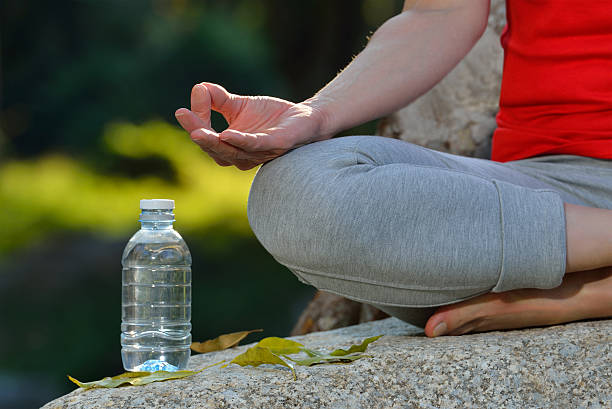Osteoarthritis, a degenerative joint condition affecting millions of individuals worldwide, can be an agonizing and life-altering experience. Among the many challenges posed by osteoarthritis, one of the most perplexing is the intensification of knee pain during the nighttime hours. For those who suffer from this chronic ailment, the quiet of the night can quickly transform into a relentless ordeal of discomfort and restlessness. But why does osteoarthritis knee pain become more excruciating at night, and what can be done to alleviate this distressing symptom?

In this article, we delve deep into the enigma of nighttime knee pain in osteoarthritis. We explore the physiological and psychological factors contributing to this nocturnal agony and, most importantly, offer five compelling solutions to help those affected find reprieve from this relentless discomfort. Understanding why knee pain worsens at night and discovering effective ways to mitigate it is not only crucial for improving the quality of life for osteoarthritis patients but also for promoting better sleep, overall well-being, and a brighter outlook on life.
Check out our Knee Pads for Comfort and Relief
As we unravel the causes and unveil practical solutions, we aim to provide valuable insights for both osteoarthritis sufferers and their caregivers. By shedding light on this pressing issue and empowering individuals with knowledge, we hope to pave the way for a more comfortable and restful night’s sleep, bringing a renewed sense of hope to those enduring the challenges of osteoarthritis knee pain.
Causes of Nighttime Osteoarthritis Knee Pain
Understanding the root causes of nighttime osteoarthritis knee pain is a crucial step in finding effective solutions. Several interrelated factors contribute to the heightened discomfort experienced during the nocturnal hours:
- Inactivity and Stiffness: Throughout the day, individuals with osteoarthritis often engage in various physical activities that, while painful, keep the joints in motion. At night, as the body rests, inactivity allows the knee joint to stiffen and become more sensitive to pain.
- Inflammatory Cycles: Osteoarthritis involves chronic inflammation within the joint. These inflammatory processes can become more pronounced at night due to circadian rhythms, leading to increased pain and discomfort.
- Fluid Accumulation: During the day, the force of gravity encourages the movement of synovial fluid in the knee joint, which helps lubricate and nourish the cartilage. At night, when the leg is elevated or at rest, this fluid can accumulate, causing joint swelling and pain.
- Temperature Variations: Temperature fluctuations often affect how our bodies perceive pain. Cooler nighttime temperatures can cause knee joints to contract and become less flexible, intensifying the perception of pain.
- Psychological Factors: Nighttime osteoarthritis knee pain is not only physical but can also be influenced by psychological factors such as anxiety, stress, and depression. These emotional states can magnify the sensation of pain, making it more challenging to sleep soundly.
As these causes intertwine and create a perfect storm of nocturnal discomfort, individuals living with osteoarthritis may find it difficult to rest peacefully and wake up feeling refreshed. Fortunately, there are practical and effective strategies to mitigate nighttime knee pain and improve the overall quality of life for those affected. In the following sections, we will explore five solutions that address the root causes and offer relief for nighttime osteoarthritis knee pain.
Solutions for Nighttime Osteoarthritis Knee Pain
While the causes of nighttime osteoarthritis knee pain can be multifaceted and challenging, there are several strategies that individuals can employ to alleviate this distressing symptom. By addressing the root causes and implementing practical solutions, osteoarthritis sufferers can look forward to more restful and pain-free nights:
- Exercise and Physical Therapy: Engaging in regular, low-impact exercises during the day can help maintain joint flexibility and reduce stiffness at night. Physical therapy regimens tailored to your specific needs can be highly effective in managing osteoarthritis symptoms.
- Anti-Inflammatory Medications: Non-prescription anti-inflammatory drugs can be taken under the guidance of a healthcare professional to reduce inflammation and alleviate pain, particularly during the night. However, these should be used with caution and only as recommended.
- Heat and Cold Therapy: Applying heat or cold packs to the affected knee joint can help ease pain and reduce swelling. Heat therapy can relax and loosen tissues, while cold therapy can numb the area and reduce inflammation.
- Elevating the Leg: Elevating the affected leg slightly, especially while sleeping, can aid in preventing fluid accumulation within the knee joint. This simple technique can alleviate nighttime discomfort significantly.
- Psychological Support: Addressing the emotional aspect of pain is equally important. Managing stress, anxiety, and depression through techniques such as mindfulness, meditation, and counseling can contribute to a more positive outlook and reduced perception of pain.
It’s essential to remember that not all solutions work universally, and the effectiveness of each approach may vary from person to person. Therefore, individuals with osteoarthritis should consult with healthcare professionals to create a personalized plan that combines various strategies for optimal results.
In conclusion, nighttime osteoarthritis knee pain can be a formidable challenge for those affected, disrupting sleep and diminishing overall quality of life. By comprehending the root causes of this pain and implementing these five practical solutions, individuals with osteoarthritis can look forward to more peaceful nights and brighter, pain-free days. With the right approach and support, it is possible to regain control over osteoarthritis and enjoy a higher quality of life, even in the darkest hours of the night.





